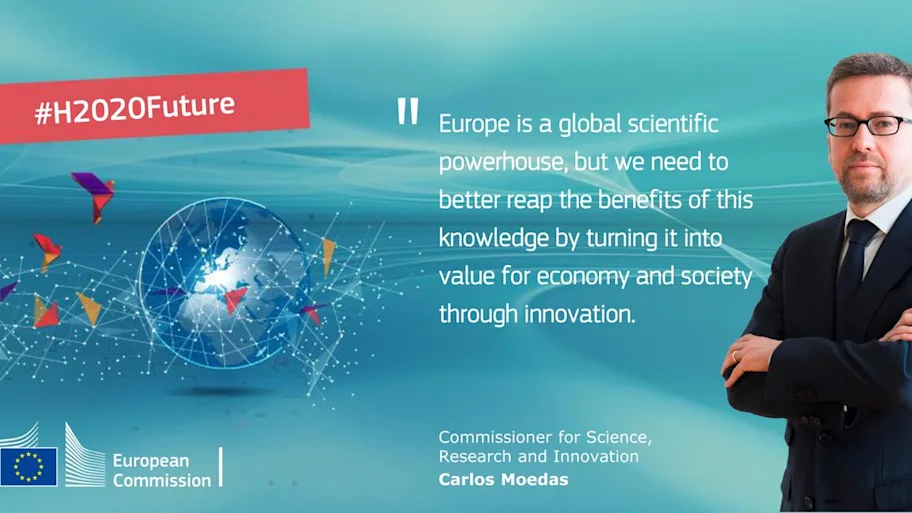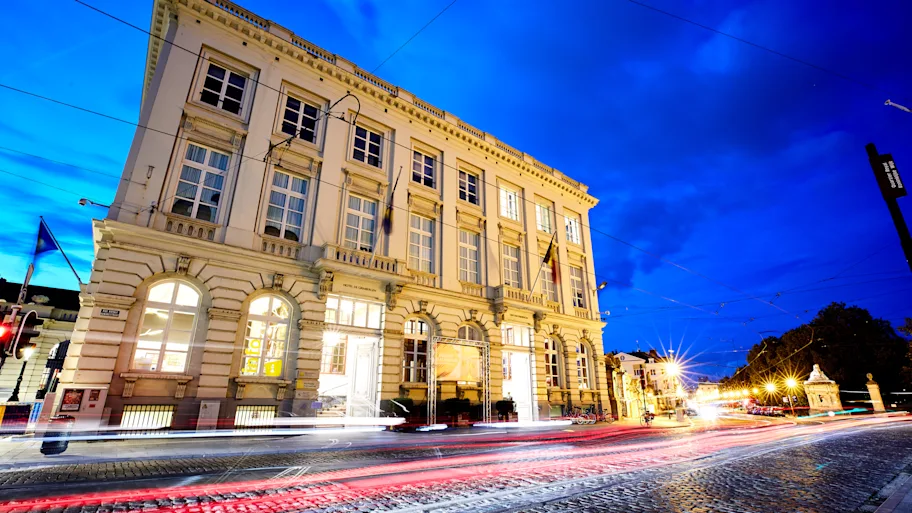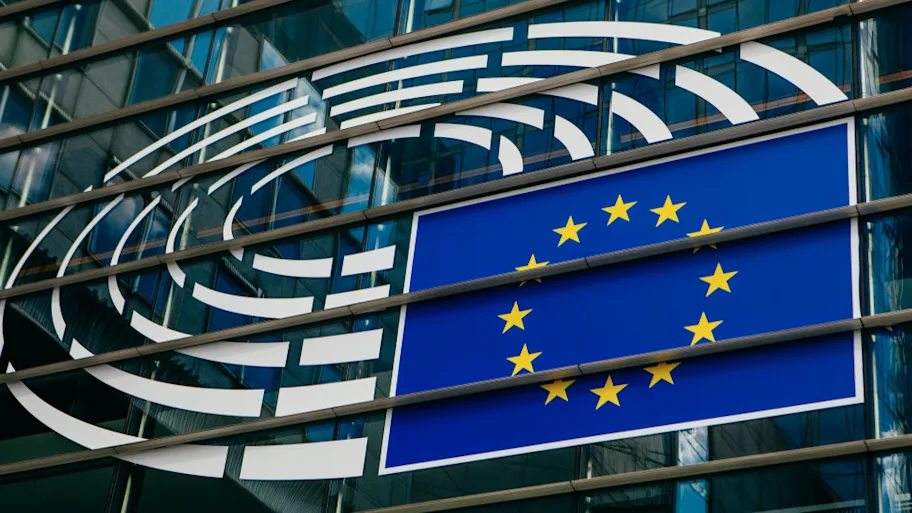
- Science News
- Frontiers news
- Frontiers contributes to the shaping of Research & Innovation in Europe
Frontiers contributes to the shaping of Research & Innovation in Europe

© European Commission
The future of Europe and its economy is based on research and innovation. Over 700 scientists, innovators, business people and policy makers came together at the recent conference, Research & Innovation – Shaping our Future, hosted by Carlos Moedas, EU Commissioner for Research, Science and Innovation, to discuss the vision and recommendations proposed by a High Level Group on maximizing the impact of EU research and innovation programs.
A range of visionary speakers, including Nobel Prize winners, major industry experts, researchers, innovators and policy makers, were invited to discuss how research and innovation could transform our economy and improve our society.
Frontiers’ CEO Kamila Markram, along with Jeremy Farrar, Director of the Wellcome Trust and Fabiola Gianotti, Director-General of CERN, were asked for their feedback on two specific recommendations within the report:
Design the EU R&I program for greater impact
Better capture and communicate impact
During this session, Maintaining World Class Scientific Excellence, Frontiers CEO, Kamila Markram, proposed two key messages for consideration by the European Commission in the next framework program:
A common vision
Open Science
A common vision to inspire researchers, industry and citizens.
Markram recommended that a single European vision will inspire and unite its citizens. “Quality of Life” is something we all desire and is something science can deliver. It aligns with the UN’s Sustainable Development Goals and inspires people in Europe to take the lead in tackling some of biggest challenges facing humanity.
A clear vision like this has the potential to:
gain the support and confidence of citizens that science is ensuring a healthy, happy and prosperous life for all
inspire and attract the best scientists to Europe
empower European industries to jump to the forefront of innovations that enhance the quality of life.
Scientific excellency and impact are amplified through Open Science.
Markram went on to suggest that a free flow of European science is the single most important action to maximize its impact and empower citizens and industry.
Europe is currently at the forefront of the Open Science revolution with Commissioner Moedas declaring Open Science a priority, taking a clear lead in making research data openly available through the Open Science Cloud and mandating that by 2020, all publicly-funded research published in the EU must be freely available and reusable. Today, 60% of the approximately 180’000 articles published under Horizon 2020 are open access, with 20% being published in Gold Open Access journals.
But the reality is, 80% – 90% of the 2 million research articles published globally every year are locked behind subscription paywalls, where they are not accessible to many researchers, and nearly invisible to innovators and citizens, removing them from the innovation cycle.
She referenced the impact of articles published in Frontiers open-access journals, which received over a quarter of a billion views and downloads, largely in Europe and North America. Interestingly, some of the highest consumption rates are in the world’s leading areas of technology research and development, notably the Silicon Valley (USA) and Shenzhen (China). Start-ups, as well as Small and Medium-sized Enterprises (SMEs) are hungry for Open Science, simply because they cannot afford subscription science.

Frontiers open-access articles achieve global, cross-sectoral impact with more than 270 million views and downloads
Open access to articles and data will allow researchers and innovators to harness Big Data tools and Artificial Intelligence – the single most important accelerator to innovation and already revolutionizing many other sectors of society, but not yet science to the fullest. Opening up science will empower researchers, citizens and companies alike to start combining knowledge in currently unimaginable ways, provide solutions for a sustainable future and boost our economies by creating new jobs and industries. More on how Markram believes Open Science can save the planet here.
The first recommendation of the High Level Group report is for Europe to double its research budget to 160 billion Euros in the next framework program. Markram pointed out that it is then vital that Europe frees science and fixes the plumbing of science communication. Allowing a free flow of scientific articles and results is the most important accelerator to innovation.

Watch Kamila Markram (Frontiers), Jeremy Farrar (Wellcome Trust) and Fabiola Gianotti (CERN) discuss maintaining world class scientific excellence in the context of shaping FP9







